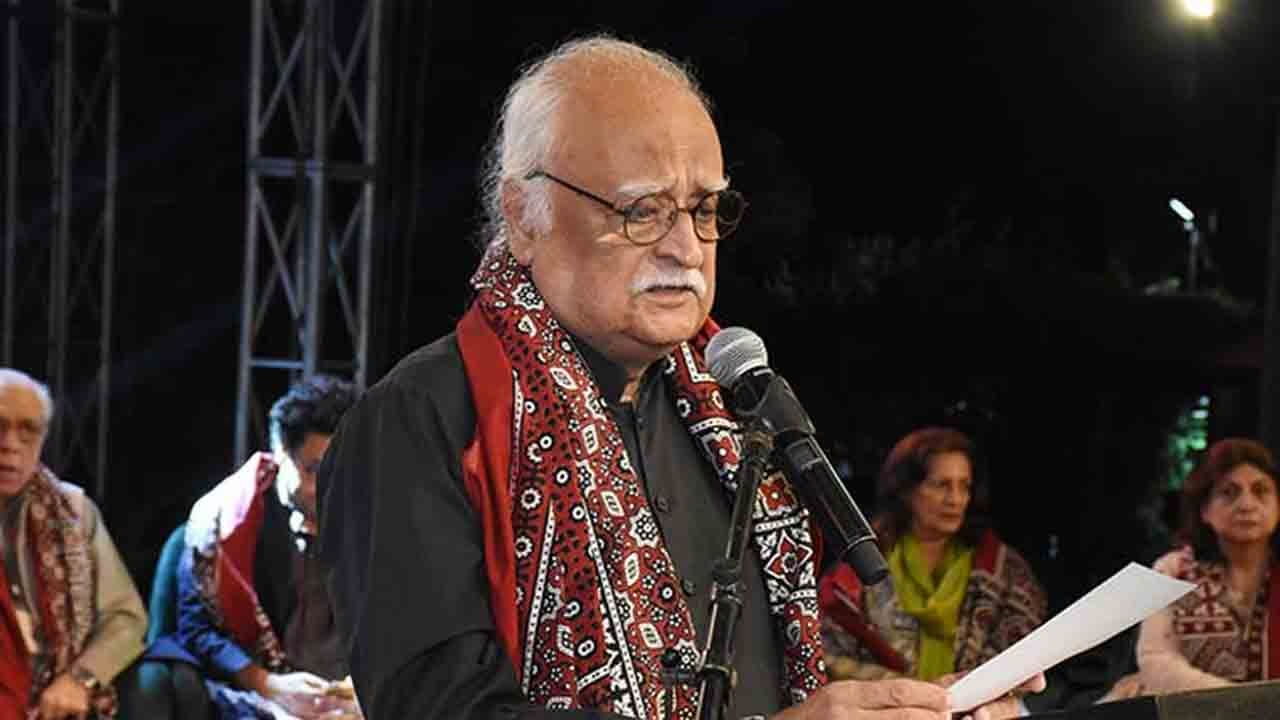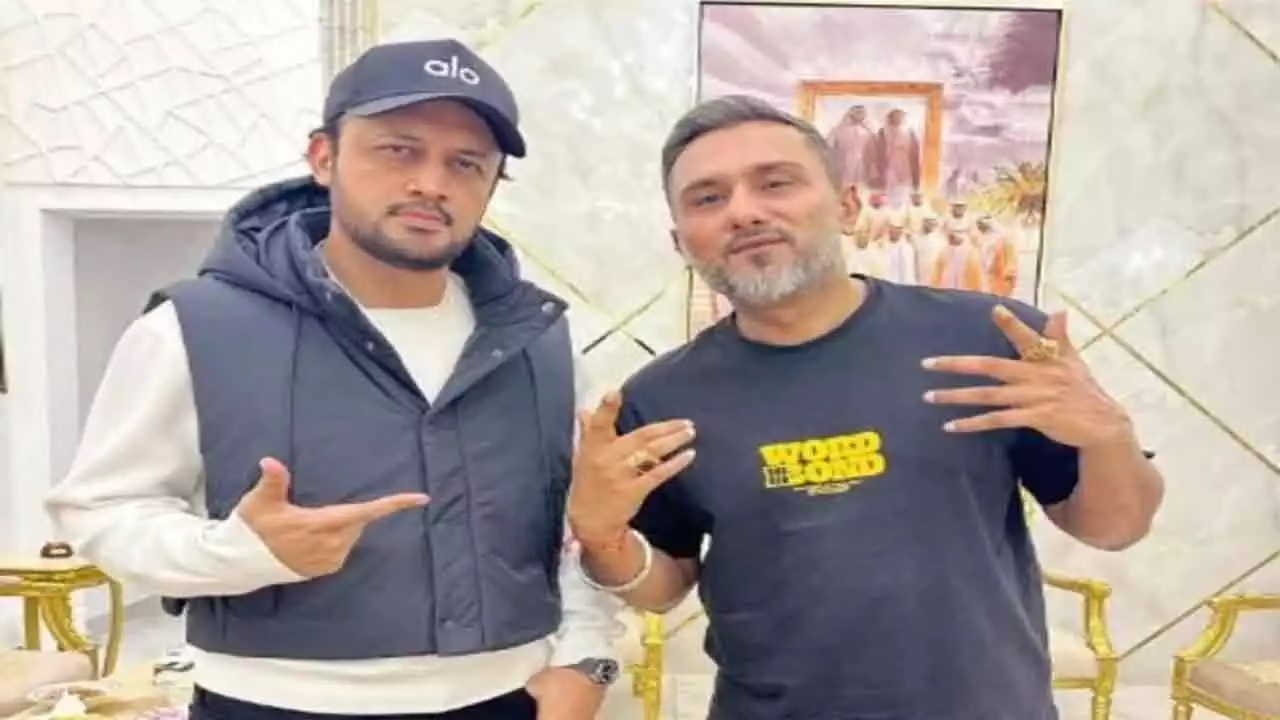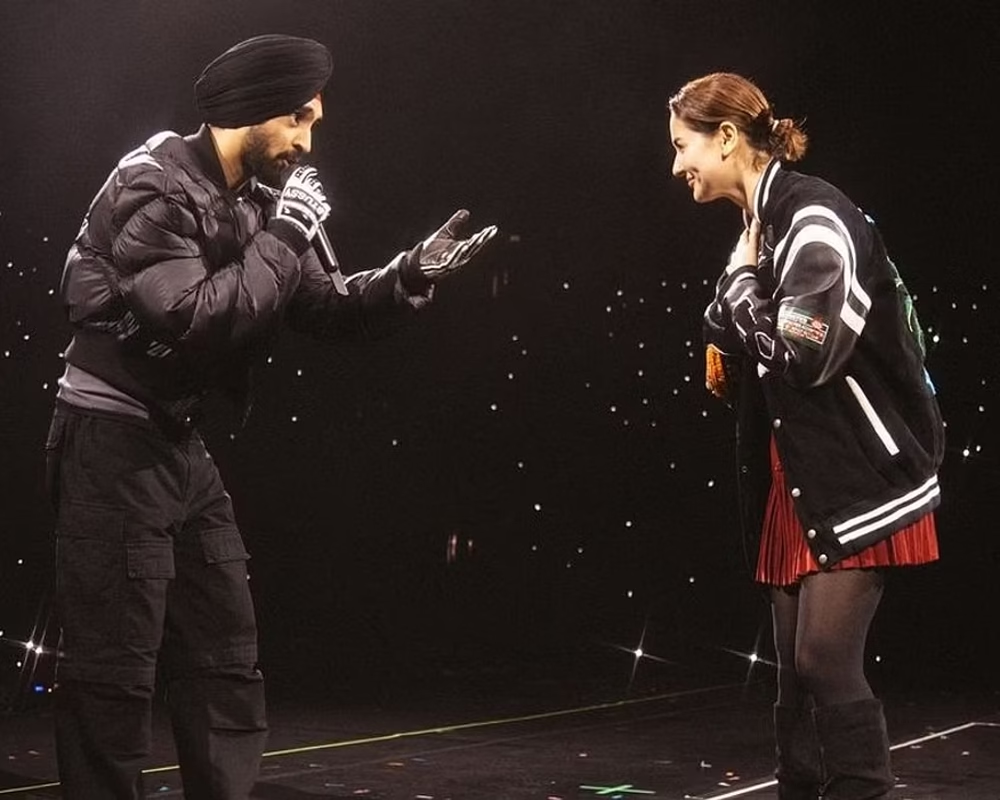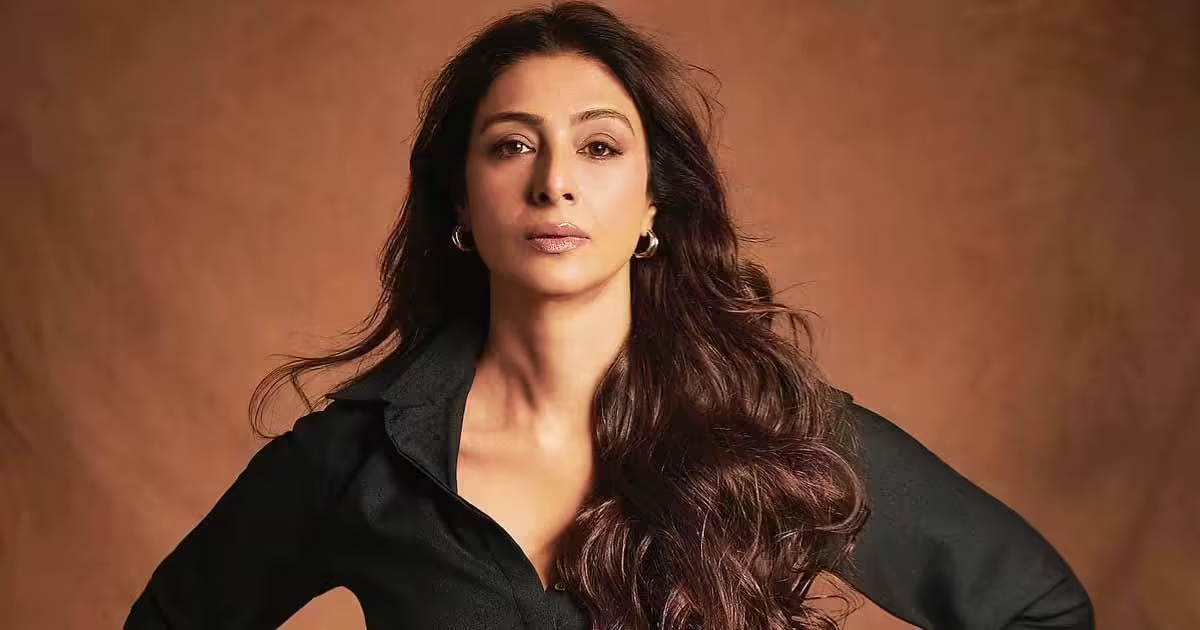A powerful message for peace and sanity echoed from the Arts Council of Pakistan Karachi, where some of the country’s most respected intellectuals, writers, and poets gathered to denounce India’s escalating war rhetoric. The press conference, attended by Arts Council President Ahmed Shah, legendary satirist Anwar Maqsood, and acclaimed poet Iftikhar Arif, focused on calling for restraint, dialogue, and truth in the wake of heightened cross-border tensions.
The gathering served as a platform for Pakistan’s literary and cultural voices to express concern over the consequences of conflict and to promote rational discourse in response to the ongoing hostilities.
Anwar Maqsood: Starting a War is Easy, Ending it is Not
Famed for his wit and timeless commentary on political and social issues, Anwar Maqsood addressed the media with a serious tone. Reflecting on recent military actions, he acknowledged reports that Pakistan had shot down five Indian aircraft, but cautioned against celebrating such incidents.
Times have changed,he said. Now no one wants war. Starting a war is easy—but ending it is very difficult. War never brings peace; it brings destruction and scars that last generations.
Maqsood emphasized that the region had suffered enough over the decades and that the focus should be on building bridges, not burning them. He urged both nations to prioritize dialogue over escalation and to listen to the voice of reason rather than that of political ambition.
Iftikhar Arif: We Stand Against the Loss of Human Life Anywhere
Renowned poet Iftikhar Arif echoed Maqsood’s sentiments, stressing the need to rise above political narratives and acknowledge the human cost of conflict. He spoke specifically about the recent Pahalgam incident, where a deadly attack had been blamed on Pakistan by India without any substantial evidence.
Wherever human life is lost—whether it is in Pahalgam, Palestine, or Pakistan—we are against it,Arif stated firmly. From the beginning, we have advocated for a transparent and impartial investigation into what happened at Pahalgam.
He criticized India’s tendency to accuse Pakistan almost immediately after such incidents, without giving room for factual inquiry. It has become a pattern. An incident occurs, and within minutes, fingers are pointed at Pakistan—before any investigation can even begin,he said.
Arif called upon global institutions and the international media to adopt a balanced stance and help de-escalate tensions by encouraging fact-based dialogue rather than fueling narratives of blame.
Ahmed Shah: “Culture and Creativity Must Speak for Peace”
Arts Council President Ahmed Shah highlighted the role of artists, writers, and cultural institutions in preventing war hysteria and nurturing peace. He asserted that intellectuals have a responsibility to challenge warmongering mindsets and to amplify the voices of those calling for sanity in times of political madness.
History has taught us that when bullets fly, books are burned. When tanks roll, voices of reason are silenced,said Shah. It is our duty to protect those voices and keep the conversation alive—not just in drawing rooms or conferences, but in the hearts and minds of the people.
He mentioned that the Arts Council will continue to organize literary and cultural programs aimed at promoting peace, cross-border dialogue, and regional cooperation. The council also plans to involve youth in discussions about peacebuilding, media literacy, and the dangers of misinformation.
Intellectual Resistance to Conflict
The press conference served as a subtle yet significant resistance against the rising tide of hostility between India and Pakistan. At a time when inflammatory rhetoric dominates political discourse and media coverage, the Arts Council event stood out as a refreshing call for thoughtful engagement, empathy, and truth.
Speakers collectively urged both countries to halt the war drums and instead invest in peace talks, cultural exchange, and transparent diplomacy. They emphasized that wars not only take lives but also destroy dreams, displace communities, and deepen generational trauma.
A Cultural Stand for Peace
As India and Pakistan face a dangerous standoff with potential consequences for millions, voices like Anwar Maqsood, Iftikhar Arif, and Ahmed Shah remind us of the irreplaceable value of peace and human dignity. Their message is simple yet profound: war is not a solution. The path forward lies in understanding, investigation, and dialogue—not accusation, escalation, or retaliation.



